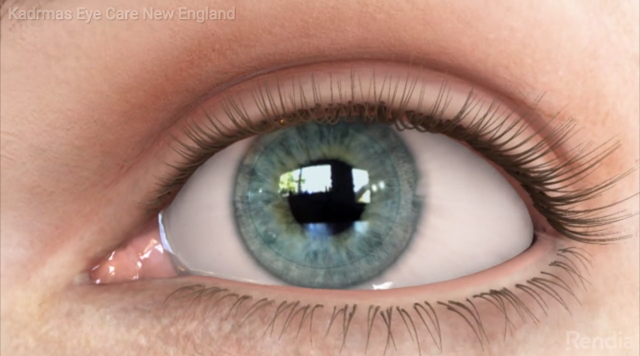Or, if you prefer to wear non-prescription sunglasses when you’re spending time outside, hanging out at the beach or going for a bike ride or run, contact lenses can be a great option. (Plus, they don’t fog up like glasses can!) Whether you are considering contact lenses for the first time or have been wearing them for years, it’s helpful to understand how to care for them correctly to keep your eyes healthy. Types of Contact LensesContacts are considered either hard or soft. Hard lenses that are made today are usually gas-permeable lenses made of plastics or silicone. According to the American Academy of Ophthalmology, hard lenses may provide sharper vision than soft lenses for some people who have astigmatism (an uneven curvature of the cornea or lens). Soft contact lenses tend to be more popular than hard lenses due to their comfort. Not all contacts are intended to be worn the same amount of time:
Additional specialized types of contact lenses are also available, such as bifocal and multifocal lenses. Keep in mind: Not every type of contact lens corrects all types of vision problems. Certain types of lenses may also require more care than others. The cost of lenses may also vary. Your eye doctor can help you determine which type of contacts are best for you based on eyes, vision, lifestyle, and personal preference / comfort. Possible Risks Associated with Contact LensesAlthough contact lenses are safe for most people, there are a few risks. The most significant risk of wearing contact lenses is developing an infection. An infection from wearing lenses can occur if bacteria, parasites, or fungi get in the eye. Microbes can build up under the lenses, or you can introduce pathogens if your hands are not clean when you handle your lenses. Wearing contacts longer than recommended and sleeping in lenses that are not intended for overnight use also increase your risk of infection. Depending on the type of infection, it can lead to scarring of the cornea and even vision loss. Symptoms of a contact-related eye infection may include:
If you develop any symptoms of an eye infection, it’s important to see your eye doctor as soon as possible. If left untreated, an eye infection can become worse and may affect vision. If the infection is severe enough, it can lead to permanent vision loss. The sooner you seek treatment, the better the chances of preventing damage. Handling Your Contact Lenses CorrectlyIt’s critical to handle your contact lenses correctly to prevent complications. Handling your lenses with clean hands is one of the most important things you can do to prevent infection. Always wash your hands thoroughly before handling your contacts. Don’t use any lotions on your hands before touching your lenses. The lotion can get on your lenses and into your eyes. When you handle your lenses, avoid contact with your fingernails. Be sure to use the recommended lens care products to clean contacts. Not all types of solutions are safe for all types of contacts. Dos & Don'ts for Contact Lens WearersIf you are a contact lens wearer, there are several dos and don’ts to prevent infection and complications. Consider the following:
One more thing contact lens wearers need to do is have regular eye exams to keep your eyes safe and healthy. Your eye doctor can detect vision changes and eye problems before they cause permanent damage, and often before they’re noticeable to you. Remember, your best defense against complications from wearing contacts is to follow your eye doctor’s recommendations regarding the best type of contacts for you and follow safe contact lens use, care, and handling. If you have questions about contact lenses, are due for a routine eye exam, or would like to schedule an appointment with one of our eye doctors, please call our office at 508-746-8600. You can also learn more about contact lenses by visiting our contact lens pages on our website. We hope you enjoyed our posts this month as we covered Ultraviolet Awareness & Healthy Vision Month. If you have any questions, don’t hesitate to contact us! Comments are closed.
|
EYE HEALTH BLOGCategories
All
Archives
July 2024
|
|
Kadrmas Eye Care New England
55 Commerce Way, Plymouth, MA 02360
14 Tobey Road, Wareham, MA 02571 133 Falmouth Road (Rt 28), Mashpee, MA 02649 |
Phone Number:
1-508-746-8600 Hours: Monday through Friday — 8 AM – 4:30 PM |


 RSS Feed
RSS Feed
